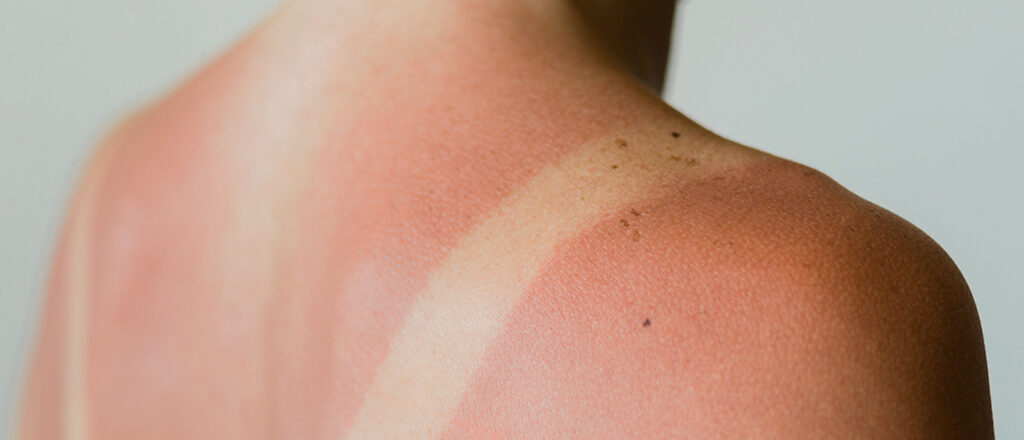
There’s No Such Thing as a Healthy Tan
Sun seekers beware. Sunburn is a red-hot reminder that your skin has been damaged from spending too much time outdoors without protective sunscreen. Overexposure to the sun accelerates skin aging and is a leading cause of basal cell carcinoma, squamous cell carcinoma and melanoma, the deadliest form of skin cancer.
Sunburn is also bad news for your eyes. Sunburned peepers become red, dry, and painful, and feel gritty. Chronic exposure to sunlight may cause pterygium (tissue growth that leads to blindness), cataracts, and perhaps macular degeneration, a leading cause of blindness.
Even without a burn, sun exposure can increase your risk of skin cancer. That’s why it’s so important to protect the health of the largest organ in your body – your skin. You can do that by staying in the shade, applying broad-spectrum sunscreen, and wearing protective clothing and sunglasses.
How to seek relief from sunburn.
Sunburn is not only dangerous, but it can also make you miserable from head to toe. Dermatologists offer six tips to help relieve the discomfort.
- Take frequent cool baths or showers to help relieve the pain. As soon as you get out of the bathtub or shower, gently pat yourself dry, leaving a little water on your skin. Then, apply a moisturizer to help trap the water in your skin and help ease dryness.
- Use a moisturizer that contains aloe vera or soy to help soothe sunburned skin. If a particular area feels especially uncomfortable, you may want to apply a non-prescription hydrocortisone. Do not treat sunburn with “-caine” products – they may cause skin irritation or an allergic reaction.
- Consider taking aspirin or ibuprofen to help reduce any swelling, redness and discomfort.
- Drink extra water. A sunburn draws fluid to the skin’s surface and away from the rest of the body. Help prevent dehydration by replenishing your fluids.
- If your skin blisters, allow the blisters to heal. Blistering skin means you have a second-degree sunburn. Do not pop the blisters – blisters form to help your skin heal and protect you from infection.
- Take extra care to protect sunburned skin while it heals. Wear clothing that covers your skin when outdoors. Tightly woven fabrics work best, and many fabrics now have SPF built right in.
For questions about a sunburn or to learn more about protecting yourself from sun damage, consult with a dermatologist or your primary care physician.
Source: American Academy of Dermatology, Skin Cancer Foundation
